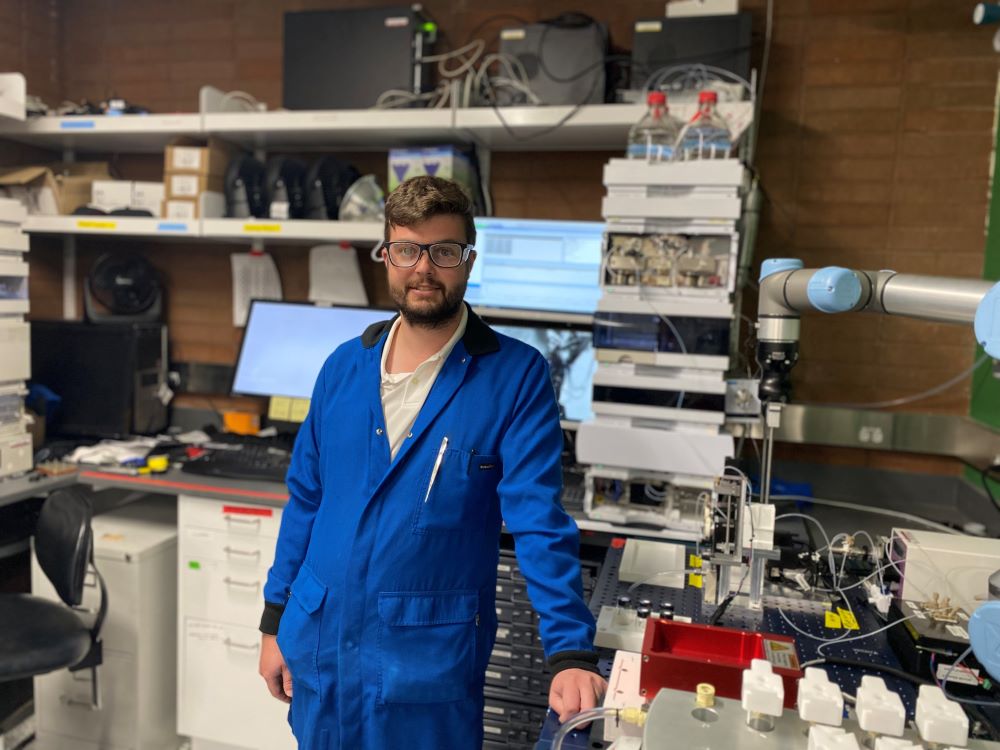Jamie Cadge - PostDoctoral Fellow in Sigman Lab

I am originally from a small town in Suffolk in the United Kingdom and graduated with my Master of Science degree in Medicinal and Biological Chemistry at the University of Nottingham. During that time, I completed an internship at GlaxoSmithKline, and my final year research project involved investigating bismuth-catalyzed fluorination reactions with Dr. Liam Ball. I moved to the University of Bristol in 2016 for my Ph.D. as part of the Bristol Chemical Synthesis Centre for Doctoral Training. During this, I was jointly advised by Professor John Bower and Dr. Chris Russell, and my research involved the development of exogenous-oxidant-free Au(I)/Au(III) redox catalysis. I moved to the University of Utah in December 2021 to start a post-doctoral position in the group of Professor Matthew Sigman. I am currently working on applying data science tools to organometallic chemistry and participating in several collaborations as part of the NSF Center for Computer-Assisted Synthesis (C-CAS).
What motivates and inspires you?
Working out how different chemical systems work, particularly the elucidation of catalytic reaction mechanisms. Inspiration comes from a lot of the older physical organic chemistry literature and uses similar techniques alongside modern ones, such as data science and automation.
What interests you most about your research?
Data science is used as a modern way to understand catalytic reactions and their mechanisms, whereas other techniques may tell you a partial story. This understanding is vital for developing new sustainable processes and making molecules and materials we use daily.
What do you wish you had known when you first came to Utah? Buy a good pair of shoes which can cope with the snow!
Your favorite University of Utah experience? Being a stone’s throw away from hikes up the beautiful mountains.
What research topics being explored in the world interest you the most?
It is fascinating to understand the chemical processes at a fundamental level and what can enable the design of more sustainable alternatives.
What do you do for fun outside the lab? How do you handle stress?
Outside of the lab, I play piano and enjoy reading and cooking. Taking an enjoyable walk up one of the canyons is a great way to take your mind off things!
What advice do you have for prospective postdocs?
Get to know as many people in your prospective group as possible before you start. Be prepared to share your knowledge and experiences with everyone and learn new skills.
What is the most significant difference between life as a grad student and a postdoc researcher?
The most significant difference about being a postdoc is that I can fully concentrate on researching without worrying about writing a thesis and getting through the defense! Also, postdocs can work more independently, so you can choose your adventure.
What do you plan to do after your postdoc?
After my postdoc, I would like to continue in academia. As a chemist, I’ve been very privileged to mentor several undergraduates and first-year graduate students. As a PI, I hope to help excite and inspire the next generation of chemists.
